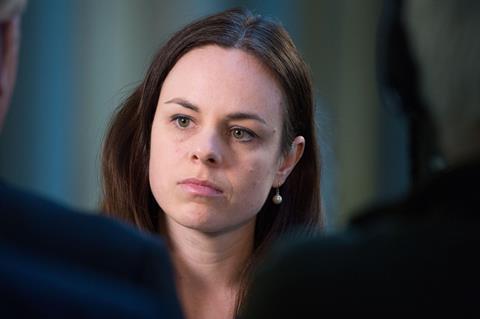The Christian doctrine of marriage as between one man and one women is not weird or fringe. It is a mainstream view, still supported by the majority of Christians worldwide, says Jeremy Balfour MSP

Much has been made over the past week of Kate Forbes’ affiliation to the Free Church of Scotland. It seems to have been the only necessary factor to consider when evaluating her fitness for the job of First Minister.
Specifically, adopting the sexual ethic of The Kirk has been deemed to be disqualifying for high office. Apparently, believing in a traditional definition of the institution of marriage has become problematic in modern, progressive Scotland.
Christians from across the theological spectrum have rushed to formulate a response to this assertion, many of whom have sought to paint this ethic as an extreme, fringe or fundamentalist distortion of what the Bible teaches. A perfect example comes from the former Moderator of the Church of Scotland, Lorna Hood, who tweeted the following:
I admire @_KateForbes being so open about her faith & respect her beliefs & her stance on moral issues as she understands them. However to say mainstream Christianity teaches that marriage is between man and women is being disingenuous.
— Lorna Hood 💙💛 (@revlornascot) February 21, 2023
I find this claim deeply puzzling. What is the basis for placing the definition of marriage, as between one man and one woman, outside the category of mainstream Christianity? From my understanding, ‘mainstream’ can either be used to describe long-held conventional wisdom, or be a description of the majority view. Either way, it is the progressive definition of marriage that would seem to be on the outside.
Church history
For the past 2,000 years, there has been a very definitive stance held by the established Church. From the early Church Fathers to the Reformation and beyond, there has been a consistent belief that the covenant of Holy Matrimony occurs between one man and one woman for a lifetime. Affirmations of this doctrine can be traced from Tertullian to Augustine, Aquinas to Luther and Calvin.
Kate Forbes views are backed by the majority of the Christians globally
The vast majority of catechisms and statements of faith that make reference to the subject agree. To say that the progressive view of marriage is anything other than a relatively modern phenomenon as it relates to the established Church is to close your eyes to the vast amount of evidence to the contrary.
There is, of course, an argument to be made that the Church has, historically, been wrong in its teaching and now needs to change. It is not an argument that I personally find persuasive, but it does exist. But if anything were to be described as “disingenuous” it would be the wholesale revision and whitewashing of the accepted Church doctrine of the past 2,000 years.
A global Church
Some will argue that society has moved on, and that the modern Church needs to move with it. The acceptance and blessing (to varying levels) of same-sex relationships within mainstream denominations such as the Church of Scotland, the Methodist Church and the Church of England are pointed to as evidence that Christians now, as a rule, no longer adhere to a traditional definition of marriage.
However, if we take a step back, we find that these examples represent a minority of Christians around the world. Around two thirds of Christians live in the Global South. They would not necessarily recognise the Christian culture of Scotland as normal, and a majority of them would not recognise the Church of Scotland’s view on marriage as biblical or orthodox.
If anything is “disingenuous” it is the wholesale revision of 2,000 years of Church doctrine
It is an outrageously arrogant to say that, just because the Church on a small island in the North Atlantic, which represents a tiny minority of Christians worldwide, has changed its view on a subject, every Christian in the world must necessarily follow. I would go as far as saying that it smacks of the kind of ideological colonialism that many in the West are trying to move away on from.
The debate about marriage in the Church is far from over. Whether you agree with Kate Forbes’ position or not, it is important not to forget that she is standing on the shoulders of 2,000 years of theology, and is backed by the majority of the Christians in the world today.



































No comments yet